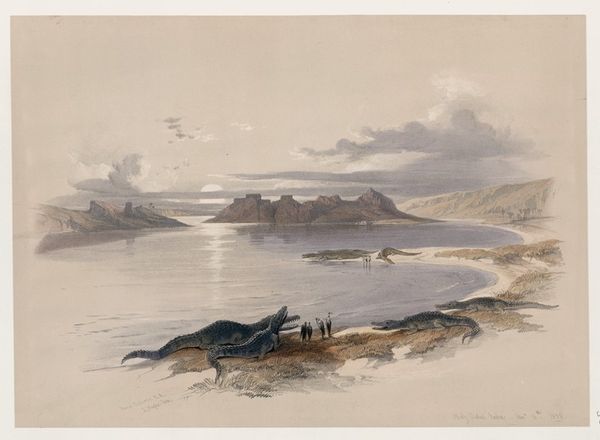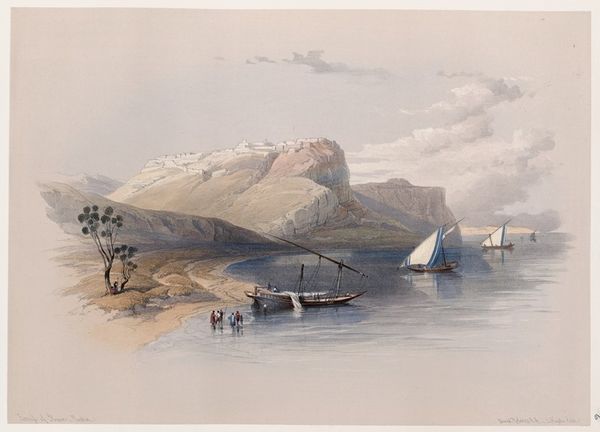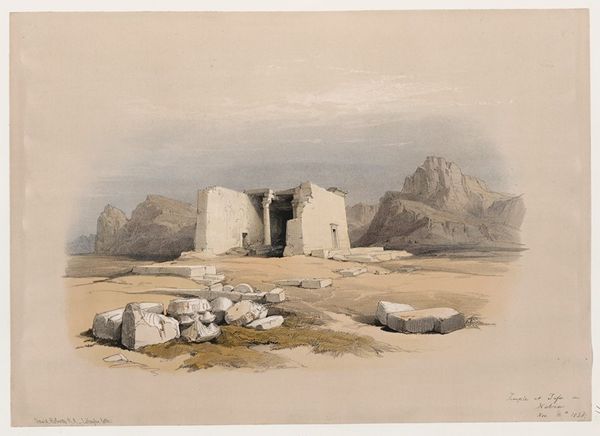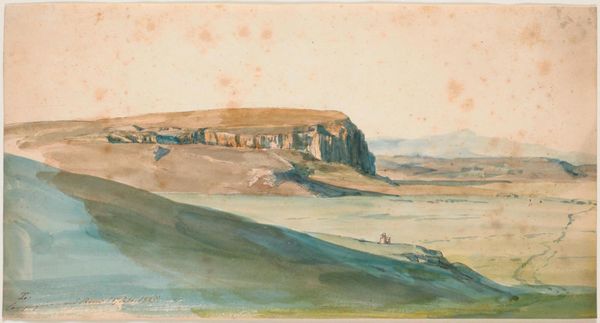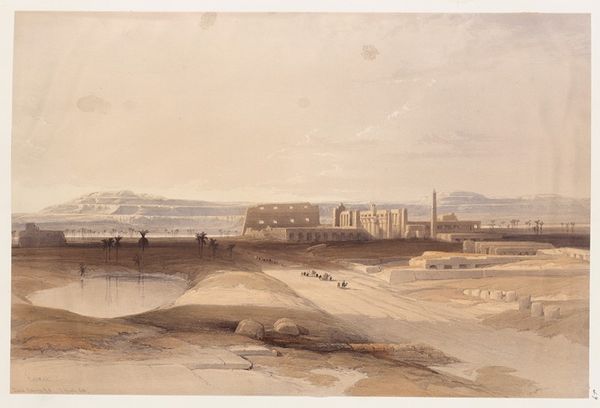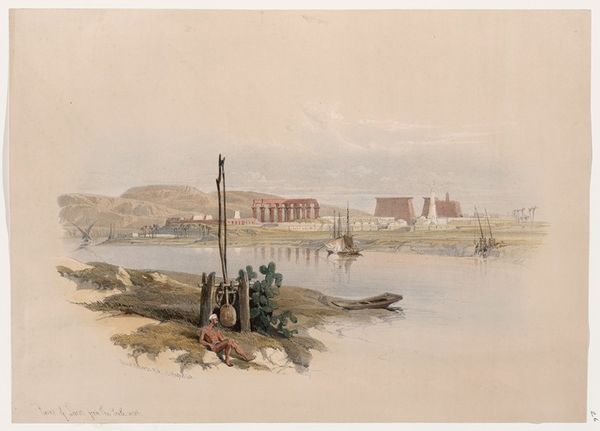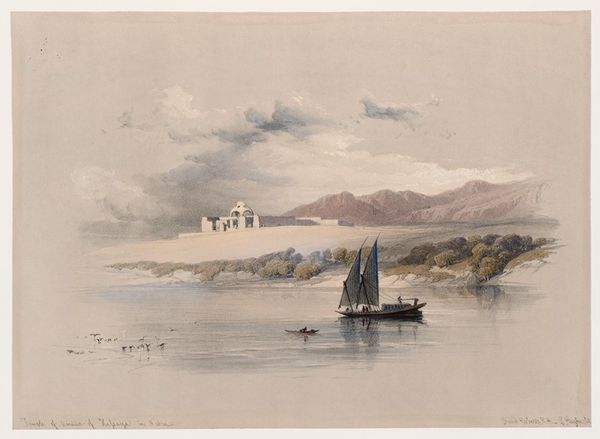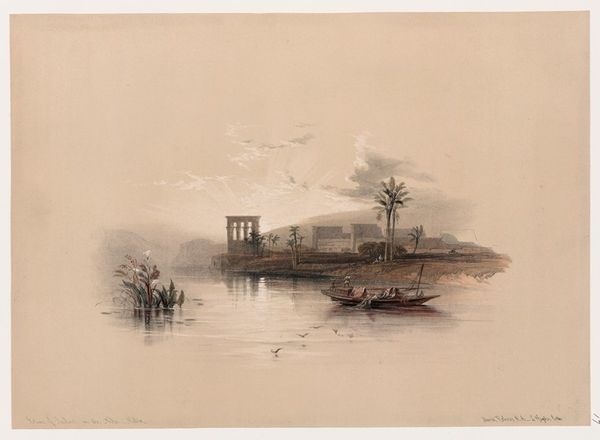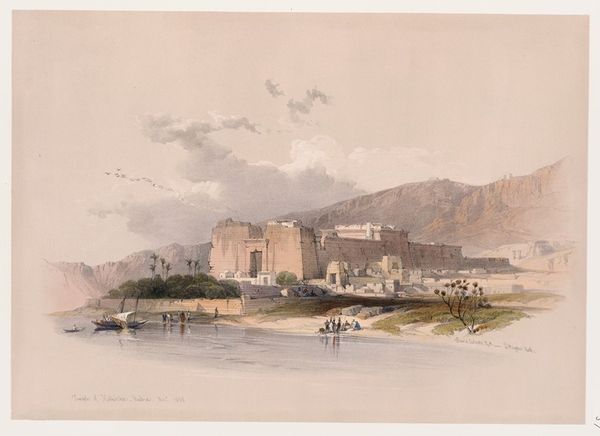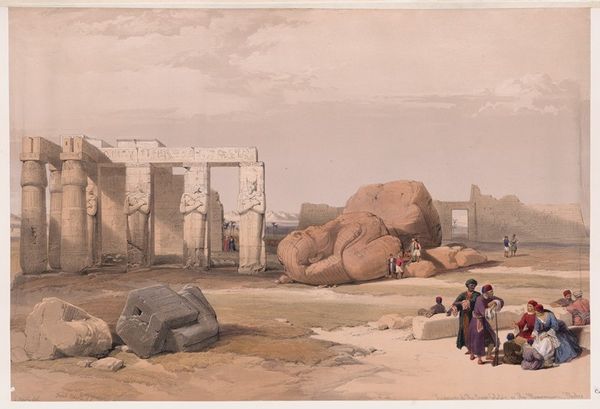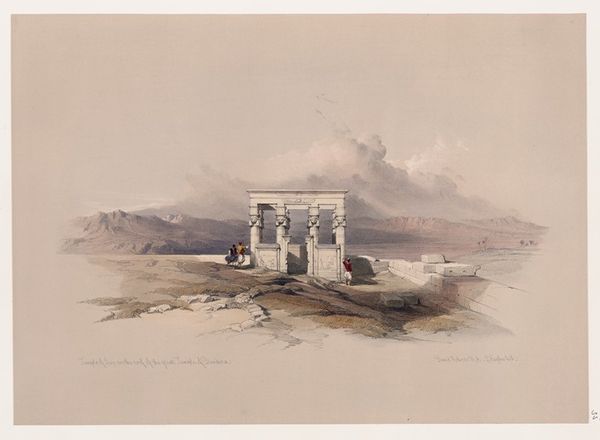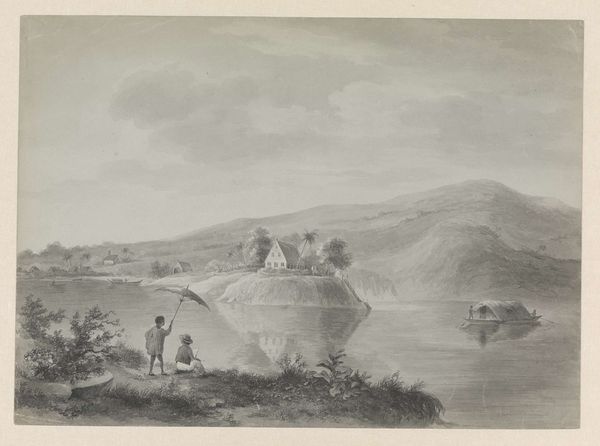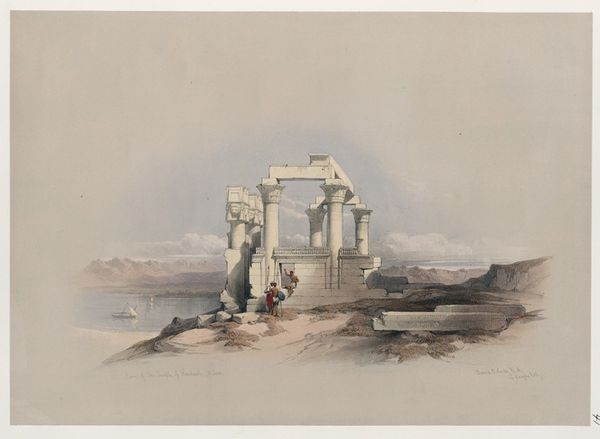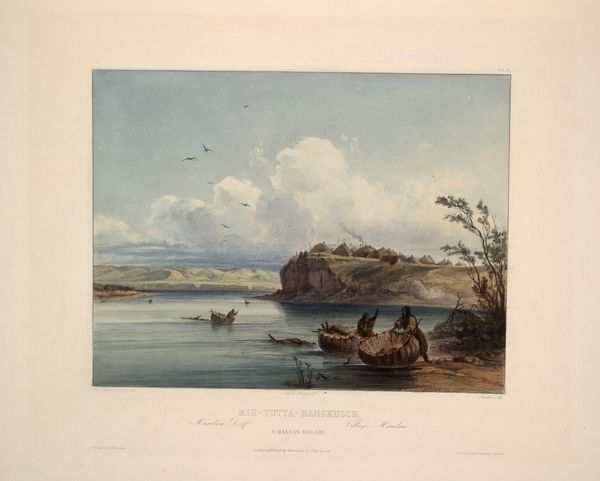
tempera, watercolor
#
tempera
#
landscape
#
ancient-egyptian-art
#
oil painting
#
watercolor
#
romanticism
#
cityscape
#
watercolour illustration
#
mixed medium
#
watercolor
Copyright: Public Domain: Artvee
Editor: This is "Philæ. Nov. 18, 1838," a watercolour and tempera painting by David Roberts, dating from around 1846-1849. It has this delicate, almost dreamlike quality. What do you see in this piece beyond just the lovely aesthetic? Curator: I see the orientalist gaze of 19th-century European art. Roberts’s picturesque rendering of Philae romanticizes a specific colonial moment. What appears as simple documentation becomes a curated vision presented to a European audience hungry for exoticism. Editor: Exoticism, okay, that makes sense. So the focus is less on objective representation and more on crafting a narrative for a specific audience? Curator: Precisely! Consider the ruins themselves. They are not presented in a state of decay or conflict. Instead, Roberts meticulously depicts them to emphasize timelessness and grandeur. Notice how the inclusion of the local figures diminishes beside the architecture, and the light romanticizes the area to appear soft and welcoming for viewers in England. This contributed to the Victorian fascination with Ancient Egypt but served a broader purpose. Editor: How so? Curator: Art like this legitimized imperial endeavors, making them seem like acts of preservation and cultural appreciation rather than exploitative acts of colonialism. By presenting a romanticized and seemingly inviting view of Egypt, it encouraged further intervention and control. Editor: So, it's about how the image serves to reinforce the political climate of the time, rather than a simple aesthetic choice? That's… a bit unsettling, honestly. Curator: Indeed. It reveals how artistic expression can be intertwined with power structures. Next time you see these 19th-century depictions, ask yourself what agendas might be at play and what this suggests for contemporary artwork presented in modern cultural contexts. Editor: This has totally changed my perspective; I will be on the lookout for the political power of art going forward! Thank you!
Comments
No comments
Be the first to comment and join the conversation on the ultimate creative platform.
